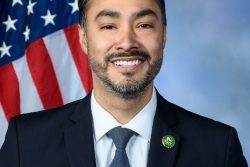To adequately manage local government, or anything else for that matter, one should have some general philosophical understanding of what local government should be and is and, given existing resources, what can be done to help it towards its goal. In an interview with Mark Benschop my first question was intended to acquire this kind of information.
 Benschop claimed that all his life he has been passionate about human rights and sees local democracy as a means whereby each citizen can take more control of those aspects of their lives that are closest to them. Added to this, Benschop claims to believe in “participatory democracy” and indeed, at almost every stage of our discourse, once he outlined what he thinks should be done there is the rider that there will be stakeholder consultations before a final decision is made.
Benschop claimed that all his life he has been passionate about human rights and sees local democracy as a means whereby each citizen can take more control of those aspects of their lives that are closest to them. Added to this, Benschop claims to believe in “participatory democracy” and indeed, at almost every stage of our discourse, once he outlined what he thinks should be done there is the rider that there will be stakeholder consultations before a final decision is made.
Mark outlined a litany of problems facing the city, only a few of which we can deal with here. He believes that mismanagement and corruption are major problems and that the administration cannot properly account for the resources it collects and has proven itself incapable of collecting its huge outstanding rates.
For example, he believes that corruption is rife in the award of building permissions and change- of-use certificates. Any city worthy of the name must strictly administer some form of regulation regarding what can be built and the areas in which businesses can be established. The departments dealing with these permits at the Central Housing and Planning Authority and City Hall will have to be reined in. If chosen as mayor, Benschop would collaborate with the relevant institutions and individuals who are interested in improving the management and ambience of the city to consider a way forward.
He will bring ‘unregulated’ areas such as Sophia into the mainstream, providing better policing, roads, lighting, health, education, etc. Team Benschop will erect in a prominent place in such communities a pictorial design of what it intends such communities to look like in the medium term. This, he believes, will help to provide a vision towards which the entire communities could work.
Benschop admits that the underlying cause of the mismanagement and corruption he perceives is largely due to institutional weaknesses. Institutional strengthening, with the aid of central government and international organisations, will be a top priority of a Team Benschop regime.
However, Benschop strongly believes that the power of the Town Clerk needs to be curbed and would like to see the creation of an executive mayor. The fact that this may only be moving the problem from one powerful institution to another and possibly making it worse was not discussed.
Over the years, many suggestions have been made for dealing with vehicle congestion in Georgetown. Only recently, there was the creation of many one-way streets, but these appear to have made little impact on the problem. In dealing with public transportation into the city there have been suggestions about establishing public bus parks on various large empty lots, e.g. the Parade Ground, the old train line, D’Urban Park, etc., from where passengers could make their way to their city destinations.
Benschop is not against these kinds of ideas but also intends, with the aid of central government and the private sector, to establish multiplex parking in various areas in the city. The idea is to seek to remove as much curbside parking as possible. But any new arrangement will give priority to the local residents and will be established in collaboration with representatives of the affected areas.
In the context of cost, Benschop also has a quite utopian (he calls it visionary) idea of building a fly-over from Princes to Sussex streets to avoid the East Bank traffic that builds up coming through the Le Repentir burial ground, particularly in the mornings.
Benschop has a soft spot for the market and street vendors. As he tells it, during his early stay in Georgetown in 1992, when financial difficulties forced him to partially live on the streets, he moved among them and therefore has a fair idea of how they live and the hardships they face. His answer to the street vending problem includes the establishment of well-appointed multiplex markets and the equitable distribution of stalls.
He claims that corruption among city marketing officials and the city constabulary will have to be stamped out: he has heard of a situation where one vendor has more than seven stalls. With the cooperation of central government, the private sector and cooperatives established by the vendors, he believes that the best Caribbean standard establishments could be constructed and properly managed.
As in many parts of Guyana, city drainage is a major problem. Benschop admits that the APNU+AFC government has been devoting significantly more resources to this problem and in cleaning the city after decades of the PPP/C starving it of funds. While admitting that visible progress has been made with the cleaning, he questions the manner in which contracts to do it are being distributed by the city administration.
As he sees it, efforts in relation to drainage have not yet borne much fruit and one problem appears to be that sufficient emphasis has not been placed on cleaning the outfalls. If Benschop became mayor, preventing rainwater from lying on the land for long periods, causing many inconveniences and damage to property, will be a major priority.
From day one, an important task of Team Benschop constituency representatives will be to focus on littering, garbage collection and upgrading the ambience of their constituencies. The team will work with central government and the private sector to make the various dumpsites safer, the collection of garbage more regular and effective and will collaborate with the local private sector and constituents to provide the hardware and arrangements that will prevent and police littering.
Team Benschop believes that it will corner the youth vote, for if there is one area in which APNU+AFC has dropped the ball it is in its brazen and careless attitude towards the young people of Guyana. During the elections young people were not as they are now being told, both verbally and in practice, that they do not have the expertise or experience to be in the echelons of government. Team Benschop will bring more young persons into city management.
Furthermore, quite apart from placing greater emphasis on the establishment, maintenance and vibrant use of community centres for the organisation of sports and cultural activities, Team Benschop will carefully assess the need of every ward in the city and collaborate with the Ministry of Education, the technical colleges and other stakeholders to provide affordable technical and vocational education that will equip the young (and the aged who care) with internationally marketable qualifications.
Try as they might have, the traditional political parties have not served this country well but their influence will only be gradually reduced. Team Benschop; a rather youthful and vibrant group with a good approach and a worthy agenda offers Georgetown the opportunity at these local government elections to begin to make a break with our torturous political past.






